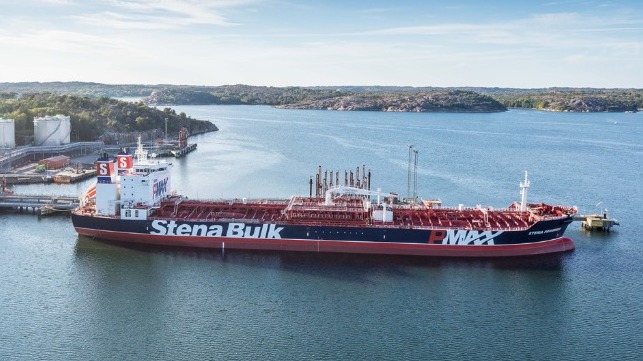Study Explores Feasibility of Mobile Carbon Capture in Shipping

As the shipping industry looks for ways to reduce its carbon footprint, one of the methods that is being explored is carbon capture. In a new initiative, a partnership of the world’s leading oil and gas companies will be working with the tanker company Stena Bulk in a study on carbon capture for shipping.
The Oil and Gas Climate Initiative (OGCI) and Stena Bulk announced their joint effort to assess the feasibility of mobile carbon capture in shipping. The organizations will collaborate on a feasibility study to evaluate the technical and economic challenges involved when capturing carbon dioxide on board ships while at sea.
“It’s increasingly evident that we need to evaluate as many potential solutions as possible that might help decarbonize the industry. Carbon capture might be such a solution with the potential to play a key role in this transition, and this feasibility study presents a unique opportunity for us to work with some of our key customers to understand and assess the technical and economic challenges involved in making carbon capture work onboard vessels,” said Erik Hånell, President and CEO of Stena Bulk.
Funded by the OGCI, the project brings together OGCI member companies’ expertise in carbon capture technologies, carbon dioxide handling, and relevant infrastructure with Stena Bulk’s shipping, trading, and naval engineering knowledge and experience.
“Carbon capture will play an important role in reducing overall greenhouse gas emissions, but there’s no reason it needs to be limited to stationary applications. Expanding carbon capture to long-distance marine shipping could help accelerate its use while addressing a difficult to abate sector of the transport industry,” says Michael Traver, Head of the Transport Workstream at OGCI.
The collaboration with Stena Bulk is in part an extension of OGCI member Aramco’s work that successfully demonstrated carbon capture onboard heavy-duty trucks, but also aims to provide the necessary research on a solution that might help shipping reach its target to cut emissions by 50 percent relative to 2008 levels by 2050.

that matters most
Get the latest maritime news delivered to your inbox daily.
This study joins several other initiatives underway that are also exploring carbon capture for the shipping industry. Late in 2019, a group of shipping companies, including NYK, Sovcomflot, Knutsen OAS and Ardmore, ship builders, including DSME, and the mining company Vale, teamed up with Denmark based Maritime Development Center to develop an onboard carbon capture and storage solution. Their research project was scheduled to run through 2020.
Japan’s Kawasaki Kisen Kaisha, Ltd. (“K” Line) vessel recently announced that it was working in collaboration with Mitsubishi Shipbuilding Company and Nippon Kaiji Kyokai (ClassNK) in an R&D effort to conduct test operations and measurements for a small-scale ship-based CO2 capture demonstration plant. Their goal is to deploy the test unit on a K Line ship in 2021.
